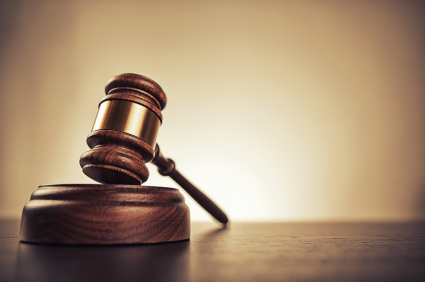Even before the president followed through on executive actions effectively granting amnesty to millions of aliens, House Speaker John Boehner (R-Ohio) vowed to file a lawsuit challenging the constitutionality of what the administration had already done, vis-à-vis dismantling immigration law enforcement. Of course that lawsuit never materialized — no surprise to those who question Boehner's real commitment to the rule of law, at least where immigration processes are concerned.

Since the president's November 20 announcement of sweeping executive actions, accompanied by a suite of 10 policy memoranda issued by his homeland security secretary, several legal scholars condemned the actions as an improper invasion of the legislative prerogative reserved to Congress under Article I of the Constitution. (See, for instance, here and here.)
There has also been no small amount of handwringing among enforcement advocates about exactly how to break through the thorny question of "standing" before the courts to file a lawsuit to bring the constitutionality of the actions under judicial scrutiny. Meanwhile, on the other side — that of open borders advocates — there has been an equal amount of what can only be described as smugness at the perhaps insuperable standing problem.
Now — courtesy of an illegal alien, no less — the issue of standing has melted away and come squarely before the federal courts. Elionardo Juarez-Escobar is a previously deported Honduran national who reentered the United States contrary to law, committing the federal felony of reentry after deportation. After being stopped drunk behind the wheel, with a minor in the car, Juarez-Escobar was charged and (miracle of miracles) the local police actually notified Immigration and Customs Enforcement (ICE), which also charged him with the federal felony in U.S. District Court. He subsequently pled guilty and was serving a minimal sentence when the executive actions were announced.
Juarez's attorney then filed a motion to vacate his client's plea agreement in order to allow him to avail himself of this opportunity of a lifetime, putting the U.S. government between the proverbial rock and hard place. How to argue in favor of the prosecution while not damaging the "legality" of the executive actions?
The judge made things more interesting by inviting amicus curiae (friend of the court) briefs on the issue from interested parties. One can imagine that the defense flogged this invitation around to get all of the open borders types to pipe up on behalf of the executive action. It's doubtful in the extreme the Justice Department did the same on its side, knowing that would encourage any number of pro-enforcement groups to submit briefs asserting that the executive action was completely unconstitutional. This left them trying to walk a very narrow levee between deep waters on either side, saying the criminal action should be remain untouched, but that the civil executive action was constitutional.
In the end, the judge ruled on the motion by Juarez-Escobar by finding that the executive actions were unconstitutional. Nonetheless, he gave the defendant a kind of menu of options to choose among:
- Seek to withdraw his guilty plea in light of the executive action;
- Continue to sentencing on or before January 22, 2015, to time-served (approximately six (6) months imprisonment (the high end of the guideline range)) — with one year of supervised release to be served in the United States, so that he may pursue his rights (if any) pursuant to the executive action, or otherwise; or
- Continue to sentencing on or before January 22, 2015, to time-served, with suspended supervised release, and with instruction to the United States Marshal Service to deliver Defendant to ICE.
If the judge believes the actions are unconstitutional (a view with which I agree), why would he have provided the defendant the above choices, particularly option b? It seems to be a kind of Solomonic resolution: the defendant might be foolish not to accept that option, but if the Justice Department accepts it without appeal, they are overtly accepting the judge's ruling that the president's actions were unconstitutional.
For those who would celebrate the finding, caution is in order and schadenfreude is premature. There are a number of troubling remarks within the ruling — such as the defendant's assertion that he was the victim of unequal treatment under the law because if he had been caught driving drunk in a sanctuary city they would never have turned him over to ICE. Think about that.
How troubling it is, and how clear an indicator that society's moral compass has turned upside down, that a man caught driving with more than double the legal blood alcohol content and contributing to the delinquency of a minor seeks harbor behind the notion that, in other places, he would have been shielded from detection by the very police authorities charged with protecting community safety.
Let's stay tuned for the next chapter in this unfolding drama, and let us also hope, in the meantime, that the states that have filed suit against the federal government, also alleging the unconstitutionality of the executive actions, press forward at full steam. And who knows? Maybe even Congress, when it reconvenes in the New Year, may even take enough interest in its constitutional duties and prerogatives to follow through on that lawsuit John Boehner has been promising for months.
